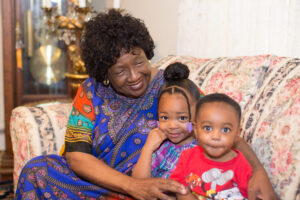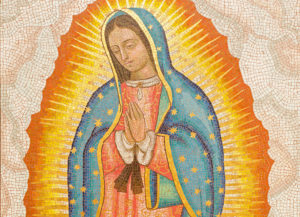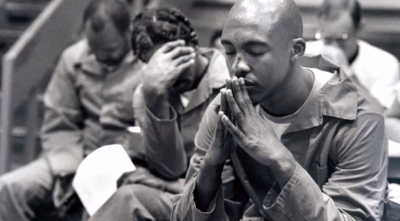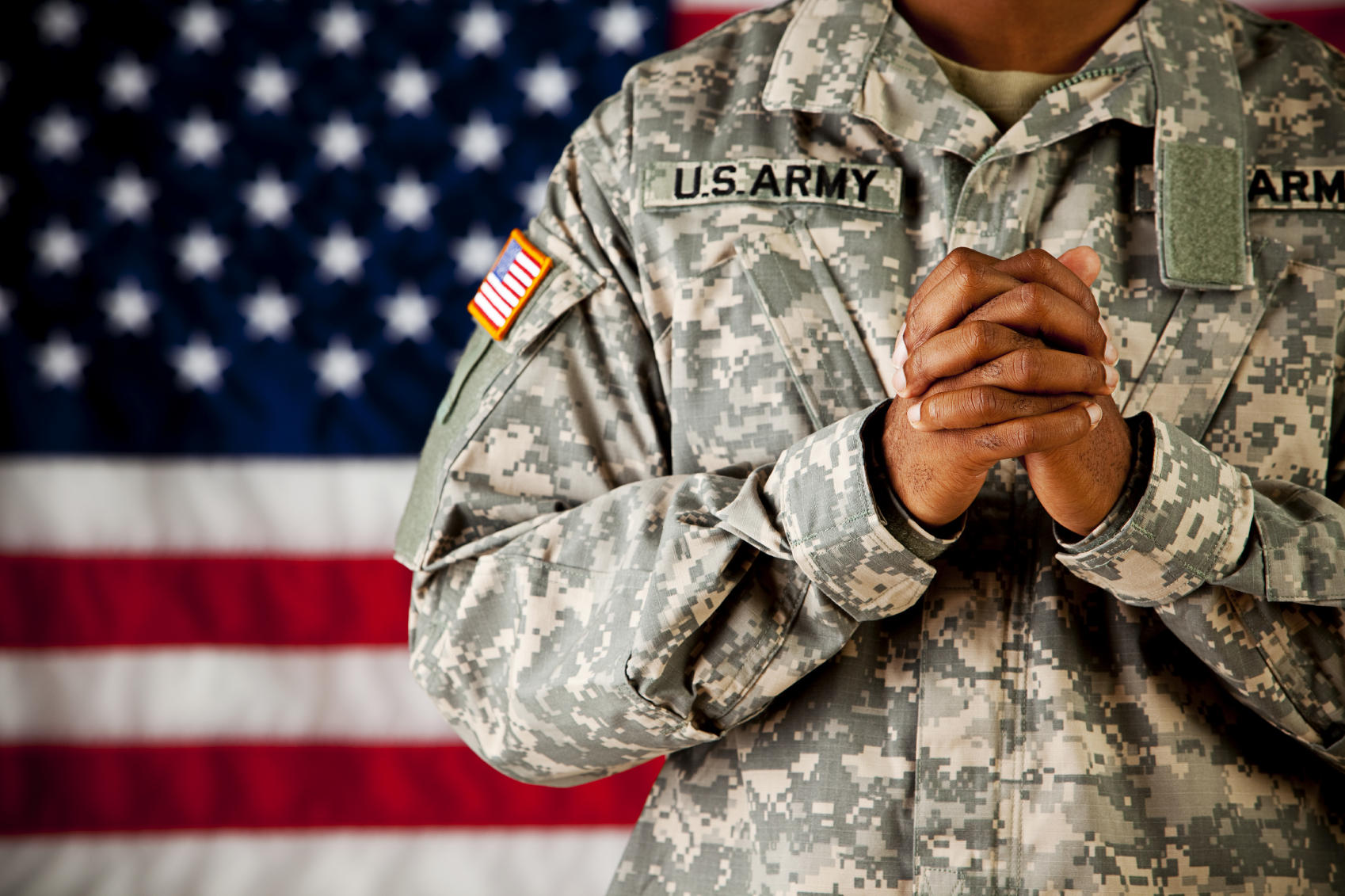Top Becket Victories
Becket is the preeminent law firm protecting religious liberty since 1994. Below are our most influential victories to date.
Supreme Court Victories
See all Becket Supreme Court Briefs here
Fulton v. City of Philadelphia (2021)
The Supreme Court unanimously protects faith-based foster care
When the City of Philadelphia threatened to shut down Catholic Social Services because it wouldn’t compromise its religious beliefs, foster parents Sharonell Fulton, Cecelia Paul, and Toni Simms-Busch fought to keep their chosen foster care agency open. The case made it to the United States Supreme Court, where the Justices unanimously held that Catholic Social Services could continue serving children in need “in a manner consistent with its religious beliefs.”
Agudath Israel v. Cuomo (2021)
Jewish synagogues prevail against New York’s draconian and discriminatory COVID-19 restrictions

Agudath Israel of America, an Orthodox Jewish organization, sued New York Governor Cuomo for discriminatory COVID-19 lockdown policies targeting Orthodox Jewish communities and restricting their right to worship. Agudath won the first-ever Supreme Court decision protecting houses of worship during the pandemic. As the Supreme Court explained, “even in a pandemic, the Constitution cannot be put away and forgotten.”
Our Lady of Guadalupe v. Morrissey-Berru (2020)
The Supreme Court reaffirms religious schools’ right to select who teaches the faith

The Constitution protects the right of religious groups to choose who will teach their faith—both in their pews and in their schools. This principle was tested when a former teacher sued Our Lady of Guadalupe Catholic School for not renewing her contract after poor performance. Building on Becket’s 2012 victory in Hosanna Tabor (2012), the Justices ruled 7-2 that governments cannot tell religious schools who can teach the faith in a religious school.
Little Sisters of the Poor v. Commonwealth of Pennsylvania (2020)
Catholic nuns successfully defend religious exemption at Supreme Court

The Little Sisters of the Poor, a Catholic order of nuns who care for the elderly poor, were forced into court when several states sued, claiming that the government should use the nuns’ health plans to deliver contraception and potentially life-terminating drugs to their employees. In a 7-2 victory, the Supreme Court ruled that the Little Sisters of the Poor would be allowed to continue serving the elderly poor without government interference.
Little Sisters of the Poor in Zubik v. Burwell (2016)
Unanimous Supreme Court protects nuns
 The Little Sisters of the Poor, a Catholic order of nuns who care for the elderly poor, were forced by the government’s HHS Mandate to choose between providing services, such as the week after pill, in their health plans in violation of their beliefs, or pay millions in IRS fines. A unanimous Supreme Court protected the Little Sisters from the fines, ordering the government to accommodate their beliefs and let them serve.
The Little Sisters of the Poor, a Catholic order of nuns who care for the elderly poor, were forced by the government’s HHS Mandate to choose between providing services, such as the week after pill, in their health plans in violation of their beliefs, or pay millions in IRS fines. A unanimous Supreme Court protected the Little Sisters from the fines, ordering the government to accommodate their beliefs and let them serve.
Holt v. Hobbs (2015)
Unanimous Supreme Court protects religious liberty for prisoners
 A Muslim inmate was denied the right to grow a half-inch beard in accordance with his faith even though 40 other state and federal prison systems allow beards. Becket and University of Virginia Law Professor Doug Laycock won a major victory for prisoners of all faiths when a unanimous Supreme Court protected Mr. Holt’s religious practice, proving that although prisoners lose many civil rights while in prison, they should not lose their religious freedom.
A Muslim inmate was denied the right to grow a half-inch beard in accordance with his faith even though 40 other state and federal prison systems allow beards. Becket and University of Virginia Law Professor Doug Laycock won a major victory for prisoners of all faiths when a unanimous Supreme Court protected Mr. Holt’s religious practice, proving that although prisoners lose many civil rights while in prison, they should not lose their religious freedom.
Burwell v. Hobby Lobby (2014)
Supreme Court protects faithful family businesses
 Barbara and David Green of Hobby Lobby Stores, Inc. were forced by the government’s HHS Mandate to choose between providing emergency contraceptive services in their health plans in violation of their beliefs, or pay crippling IRS fines. This was true even though the Greens already provided 16 out of the 20 contraceptives that the HHS Mandate required. The Supreme Court protected the Greens and Hobby Lobby, demonstrating that Americans do not lose their religious freedom when they open a family business.
Barbara and David Green of Hobby Lobby Stores, Inc. were forced by the government’s HHS Mandate to choose between providing emergency contraceptive services in their health plans in violation of their beliefs, or pay crippling IRS fines. This was true even though the Greens already provided 16 out of the 20 contraceptives that the HHS Mandate required. The Supreme Court protected the Greens and Hobby Lobby, demonstrating that Americans do not lose their religious freedom when they open a family business.
McCullen v. Coakley (2014)
Unanimous Supreme Court champions free speech
 Eleanor McCullen has counseled women outside of abortion clinics in Massachusetts for decades, offering support and a listening ear. But a state-imposed 35-foot buffer zone around all clinics put an end to her sidewalk ministry, stifling her free speech and peaceful religious exercise, and denying help to women in search of options. Becket’s Mark Rienzi defended Eleanor’s First Amendment rights all the way to the Supreme Court, which ruled unanimously in her favor, protecting free speech for all Americans.
Eleanor McCullen has counseled women outside of abortion clinics in Massachusetts for decades, offering support and a listening ear. But a state-imposed 35-foot buffer zone around all clinics put an end to her sidewalk ministry, stifling her free speech and peaceful religious exercise, and denying help to women in search of options. Becket’s Mark Rienzi defended Eleanor’s First Amendment rights all the way to the Supreme Court, which ruled unanimously in her favor, protecting free speech for all Americans.
Hosanna-Tabor Evangelical Lutheran Church and School v. EEOC (2012)
Unanimous Supreme Court protects right of churches to choose their leaders

Hosanna-Tabor Evangelical Lutheran Church runs a school that hires its teachers as ministers of the faith and leaders of their worship services. When the church dismissed a 4th grade teacher for violating one of its tenets, the teacher sued. Becket along with University of Virginia Law Professor Doug Laycock defended the church’s right to choose its own ministers free from government interference, a principle that the Supreme Court unanimously protected. The Wall Street Journal called the victory “among the most significant religious liberty cases in a half century” because the decision affirmed that churches – not the government – must be free to choose who will guide the congregation.
Appellate and Trial Court Victories
Kondrat’yev, et al v. City of Pensacola (2020)
Court protects World War II-era historic cross

For over 75 years, the City of Pensacola has maintained a historic World War II-era cross that its citizens placed in a public park to bring the community together on the eve of war. In 2016, an atheist group sued, seeking to remove the cross. Becket successfully defended the City, with the Court ruling that the cross was constitutional, that it has become “embedded in the fabric of the Pensacola community” and that removing it could “strike many as aggressively hostile to religion.”
Gaylor v. Mnuchin (2019)
Diverse houses of worship defend 60-year-old tax-free housing allowance

For over 60 years, federal law has allowed churches, mosques, and synagogues to give their ministers a “parsonage allowance”—a housing stipend that is exempt from federal income tax—so that religious leaders can live in the communities they serve. When an atheist group challenged the exemption—threatening churches nationwide with $1 billion per year in new taxes—Becket stepped in and won a unanimous victory upholding the parsonage allowance.
Fratello v. Roman Catholic Archdiocese of New York (2017)
Catholic parish school wins right to choose its own church leaders

When the former principal of a Catholic parish school sued the Archdiocese because her contract was not renewed, the Archdiocese of New York went to court to defend its right to choose its own leaders free from government interference. This right to religious autonomy—known in the employment context as the ministerial exception—has been affirmed in cases across the country, and was again affirmed at the Second Circuit.
Singh v. Carter (2017)
Faithful Sikhs win the right to practice their faith and serve in the military

Captain Simratpal “Simmer” Singh, a U.S. Army Captain, Bronze Star recipient, and observant Sikh fought for years to be able to wear a religious beard and turban while serving his country. Though the military’s 30-year beard ban accommodated beards worn for secular and medical reasons, Captain Singh was denied an accommodation for a beard worn for religious reasons. Becket successfully argued for Captain Singh’s right to serve both his country and his faith, resulting in new Army regulations protecting Sikh soldiers throughout their military careers.
McAllen Grace Brethren Church v. Jewell (Eagle Feathers) (2016)
Lipan Apache religious leader vindicates right to use eagle feathers for worship

Pastor Robert Soto is an award-winning feather dancer and Lipan Apache religious leader who was threatened with criminal fines and imprisonment for using eagle feathers in his religious worship. After an undercover federal agent raided his powwow and seized his sacred eagle feathers, Pastor Robert Soto fought back, winning a historic settlement agreement that allowed him and over 400 members of his congregation to continue using eagle feathers in observance of their Native American faith.
Center for Inquiry v. Jones (2016)
Protecting the right of religious ministries to provide valuable social services

Prisoners of Christ and Lamb of God Ministries help ex-convicts transition back into society by providing housing, food, clothing, transportation, job training, substance abuse treatment, and optional spiritual counseling. Ministries like these result in recidivism rates averaging only 15 percent, which is much lower than similar state-run programs that produce a 70 percent recidivism rate. When an atheist group sued the state of Florida under an old anti-religious law, a Florida court ruled that the state may continue to partner with religious ministries to provide social services for the general welfare.
Freedom from Religion Foundation v. Weber (2015)
Defending a World War II Memorial from an atheist lawsuit

For over 60 years, a statue of Jesus has stood on a Montana ski resort mountaintop to honor fallen World War II soldiers. A beloved local icon, the statue evokes memories of the religious shrines veterans had seen during their battles in the mountains of Europe. A Wisconsin-based atheist group sued the Forest Service to remove the statue. The Ninth Circuit Court of Appeals said the statue could stay, ruling that religious symbols on public land do not violate the Constitution.
Intermountain Fair Housing Council v. Boise Rescue Mission (2011)
Defending a Christian homeless shelter’s right to serve the needy

The Boise Rescue Mission serves hundreds of thousands of homeless individuals by providing a Christian environment for housing, addiction recovery programs, and other valuable social services. When the Intermountain Fair Housing Council, a federally-funded housing rights group, came after the homeless shelter, the Ninth Circuit Court of Appeals agreed with Becket’s defense of the shelter’s right to minister to the homeless according to its Christian principles.
Newdow v. Rio Linda Union School District (2010)
“Under God” – a symbol of our nation’s religious heritage and the source of human rights

In what the L.A. Times called one of its “most controversial opinions,” the Ninth Circuit Court of Appeals ruled in 2002 that the words “under God” in the Pledge of Allegiance were unconstitutional. After Becket defended the Pledge in a later lawsuit, the Ninth Circuit changed its mind, agreeing with Becket’s argument that the phrase “under God” represents the Founding Father’s political philosophy that our rights come not from the state, but from a higher power, and so the government can’t take those rights away.
Merced v. Euless (2009)
Protecting Santeria priest’s right to worship at home

A Santeria priest in Texas regularly performed religious rituals in his own home, which included the slaughter of certain small animals, and had done so without incident for 16 years. When the city enforced a law banning the slaughter of animals, discriminating against the priest, Becket stepped in to defend his right to worship freely at home. A unanimous panel of the Fifth Circuit Court of Appeals protected the priest’s religious practice, ruling that banning it violated his ability to perform key rituals of his faith – an important victory for religious freedom.
Fraternal Order of Police v. Newark (1999)
Protecting the right of Muslim police officers to wear religious beards

Two Sunni Muslim police officers—whose faith required them to wear beards—sought a religious accommodation from their government employer’s “no beard” policy, which already permitted beards for certain medical conditions. The Third Circuit Court of Appeals agreed with Becket, setting an important precedent that when government grants accommodations for non-religious purposes, it must provide similar accommodations for religious ones, too.
Rigdon v. Perry (1997)
Muzzled military chaplains enlisted Becket’s help against Pentagon censorship

Military chaplains provide spiritual counseling and religious services to servicemen and women, but a Pentagon gag order prevented chaplains from speaking freely about their faith from the pulpit. Defending a group of Catholic, Jewish, and Muslim chaplains and service members from military censorship, Becket championed the rights of military chaplains to preach freely about political and social issues according to their conscience without government interference.